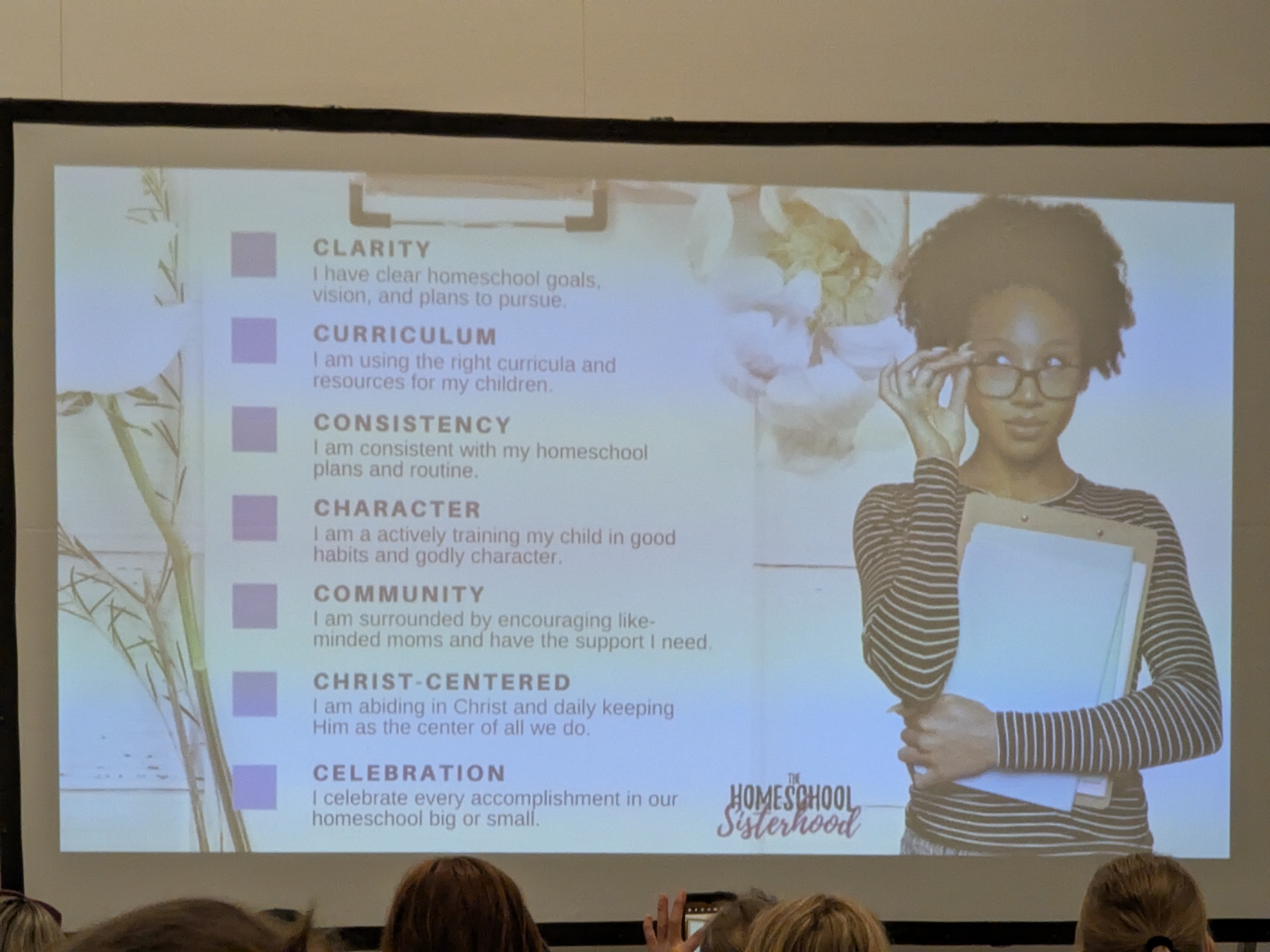The 7 Cs of a Successful Homeschool
Speaker: Ana Willis (They Call Me Blessed)
Joined this one 15 minutes late after ditching Work from Home as a Medical Transcriptionist
1 Clarity
No knowledge of God = no biblical world view
2 Curriculum
A - Approach to Teaching
- tradition
- Charlotte Mason - teaching the whole person.
- Classical - Charlotte Mason was inspired by classical. Classical is more structured.
- Grammar stage
- Logic stage
- Rhetoric stage
- Unit study - a thematic or topical approach. Sometimes you can put curriculum aside to do a topical study. Example: go study airplanes if your son is really interested in airplanes. Focus on a theme or topic, and teach ALL subjects around that topic.
- Montessori - student and sensory driven discovery learning and real life applications. Great for little kids.
- Unschooling: self-directed, interest-led approach. The kids just go find books and learnings about things they are interested in.
- Digital: online resources, interactive programs, and virtual classes for tech-driven education.
There is no such thing as enough books!
M - Money
What is your curriculum budget
Consider:
- which components and resources you need for the year
- are the materials reusable? Does the publisher update or revise the materials frequently?
- which resource do you have more of: time or money?
- if you have money: buy ready-to-use material
- Ana is in favor of this if you can do it. Keep it simple.
- if you have time: get materials that must be prepared or gathered
- planning for homeschooling can feel like planning for failure
- we need to have a plan, but we need to be flexible too
- if you have money: buy ready-to-use material
I - Individual Learning Styles
How does your child learn best?
- Auditory: normally this is a child that talks a lot. Asks a lot of questions. Learn through listening, talking, and reading out loud. If you have a child who talks a lot, that's a gift.
- Listen to audiobooks or recorded lessons.
- Biblioplan is good
- Discuss new concepts in a group
- Read out loud
- Use rhymes to memorize
- Listen to audiobooks or recorded lessons.
- Visual: learns through seeing. Prefers written instructions and visual materials
- Use colorful illustrations
- Watch videos
- Read written instructions before starting a task
- Tactile: moving, doing, and touching
- Use hands-on manipulative for math
- Writing letters or words in sand, clay, etc.
- Acting out historical events
- Science experiments
- Build models
- Multi-sensory: employ a variety of activities and components
A lot of kids will have more than one learning style. And child A will be different than child B.
L - Life
What season of life is your family in?
- What age kids?
- Working from home?
- Traveling a lot?
Y - You
What are your time limitations and priorities?
- low teacher involvement
- medium teacher involvement
- high teacher involvement
How much structure do YOU need? How confident are you about how to teach?
- if you are looking for heavy teaching support, find more scripted curricula
3 Consistency
Consistency is key!
If you have a bad curriculum, feel free to ditch it. But don't jump around all the time.
Establish a consistent daily and weekly routine.
We may start at different times, but we are going through the same sequence each day. That way the kids know when it begins, when it ends, and what is coming next.
Combine structure with flexibility.
Develop habits that promote learning.
4 Character Training
Character is more important than academics.
the habits of the child produce the character of the man
- Charlotte Mason
Character training begins with habit training.
Watch what habits your kids are getting into. Lying? Messy?
"Every day, every hour, the parents are either passively or actively forming those habits in their children upon which, more than upon anything else, future character and conduct depend..."
- Charlotte Mason.
It's good to teach your kids they can be good or bad. They can be average or best. It is a choice every day.
important habits to cultivate
If you don't have these habits toward your kids, don't expect them to have the habits. You need to model it first.
Attention
Patience
Obedience
Perfect Execution
Truthfulness
Regularity in Devotionals
Self-Control
Courtesy
Order
Thanksgiving
Manners
Fortitude
Focus on character development alongside academics.
Let them think for themselves.
Use stories to integrate character.
Teach them social and emotional skills
Use fun stories and Bible verses to teach your kids how to overcome sibling rivalry. The story helps teach them the message without you having to tell them what to do.
5 Community
Don't do this alone. Find other homeschoolers.
Participate in coop classes, field trips, and other meetups.
6 Christ Centered
Make Christ the center of your homeschooling.
- integrate biblical principles into your daily lessons
- start each day with prayer and Bible study
- use the Bible as a primary resource for teaching values and lessons
- incorporate scripture memorization
- encourage your kids to develop their own relationship with God
7 Celebrate
Recognize and celebrate milestones and achievements, big and small.
- kids are motivated by praise
- praise is a powerful tool
And dads, praise your wives. Moms, celebrate your husbands.
Ana likes to do a weekly celebration on Friday

Questions
Q: What to do with lots of kids?
A: Don't buy a full curriculum for each child. Teach your kids together as much as you can. Use the olds to help with the littles, as much as you can. And get multi-sensory curriculums.
Q: where can I learn about Charlotte Mason.
A: check out ana's website. Can download a free Charlotte Mason guide.